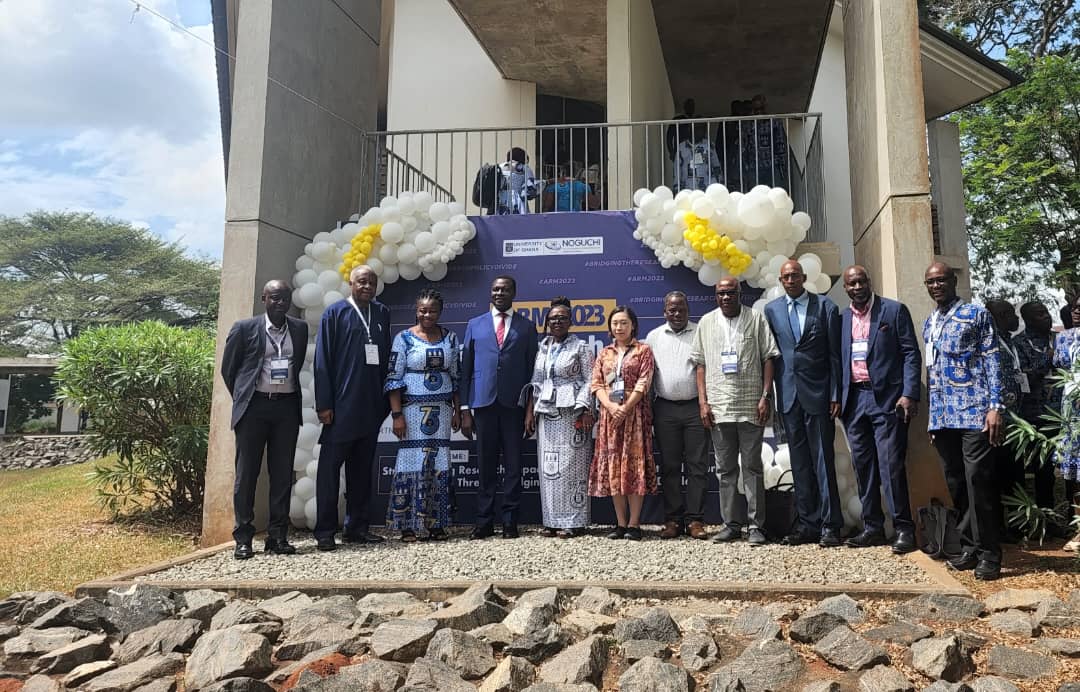By Linda Naa Deide Aryeetey
Accra, Nov 24, GNA – The 8th Annual Research Meeting of the Noguchi Memorial Institute for Medical Research (NMIMR) has opened with a call on researchers to engage communities in their research and policy dialogues.
This is necessary to help communities relate to research findings and build trust between researchers and policymakers to ensure a successful implementation of health interventions.
Dr Francis Kasolo, the World Health Organisation (WHO) representative to Ghana, made the call at the opening of the meeting in Accra.
The Annual Research Meeting serves as a platform for producers of research and their consumers to deliberate on ways of making research findings more useful in decision making.
The two-day meeting is under the theme “Strengthening Research Capacity to mitigate Current and Future Disease Threats: Bridging the Research-Policy Divide”.
Dr Kasolo said the theme for the meeting highlighted a crucial intersect between scientific research and public policy in addressing global health challenges.
He said research provided the evidence base necessary for informed decision-making, while policy translated research findings into actionable strategies for disease prevention and control.
“This interconnection has become more critical now than ever, given the increasing frequency and complexity of emerging and re-emerging disease threats,” he said.
Dr Kasolo called for a sustained investment in research infrastructure, including laboratories, data systems, and skilled personnel, adding that, a well-equipped and trained research community was essential for early detection, rapid response, and long-term mitigation strategies.
“We, therefore, encourage the sharing of research findings, data, and best practices among laboratories and across nations, diseases know no borders, and a coordinated global effort is crucial for understanding, monitoring, and responding to threats effectively,” he said.

Professor Nana Aba Appiah Amfo, Vice Chancellor of the University of Ghana, said as the world prepared for future pandemics and conducted research into the rapid development of interventions against emerging and reemerging infectious and non-communicable diseases, building the required capacity in terms of human resources and getting the relevant infrastructure were crucial.
“The global community needs to work to ensure that we are not caught unawares again as in the case of COVID19 pandemic,” she said.
Professor Dorothy Yeboah- Manu, Director of NMIMR, said although Africa bore disproportionately high rates of the global disease burden, only few biomedical research and clinical trials originated from the continent.
“Africa is home to about 18 per cent of the world’s population, with 25 per cent of the global disease burden, yet researchers in Africa constitute just one point one per cent of the global scientific research community,” she noted.
She said currently, the continent consumed 25 per cent of the world’s vaccine production yet manufactures less than 1 per cent of its healthcare system needs, which diminished the capacity to respond to pandemics and health crises.
She called for targeted skill and researcher development frameworks with sustained support for doctoral and post-doctoral training to bridge the gaps.
The Noguchi Memorial Institute for Medical Research (NMIMR) of the College of Health Sciences, University of Ghana, is a leading health research centre that has supported health systems in Africa in the areas of disease surveillance, diagnosis capabilities and research training.
The Institute’s mandate is to conduct research into diseases of public health importance, provide specialised diagnostics support for global health interventions, and to build the capacity of the next generation of scientists through post graduate training and skit training of allied health professionals across the subregion. The Institute works closely with almost all disease control programmes in the Ghana Health Service, impacting health policy and healthcare practice and delivery.
GNA